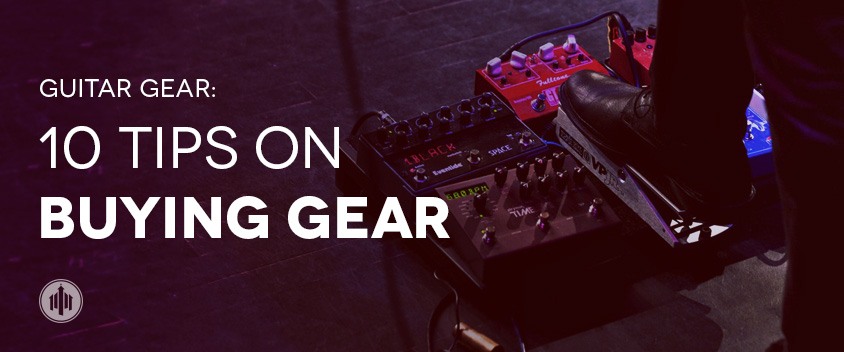
Proverbs 21:5 The plans of the diligent lead surely to abundance, but everyone who is hasty comes only to poverty.
(Disclaimer: I have broken all of these rules at one time or another.)
1. Decide if you really need the piece of gear. Will you be using it consistently? Will it enhance what you bring to worship? Maybe your team doesn’t have a keyboardist so you need a pedal to create ambient pads. Maybe your church can’t afford quality cymbals, so you’ve decided to purchase your own. Make sure there is a good reason for making the purchase.
2. Pray about your purchase. Don’t buy anything on impulse. Especially don’t make online purchases late at night.
3. Try as much as possible to purchase used or blemished gear. You can save as much as 50% by purchasing second hand. I was able to buy my amp for $1000 less than it’s street price because a studio had used it for 1 week to record an album. When I purchased my most recent guitar, I was able to get it for $500 off because of 1 tiny scratch on the back of the guitar which to this day I still can’t find.
4. For every new piece of gear I purchase I try to sell a piece of gear. As much as I like collecting guitars and amps, I am continually convicted to get rid of gear. Try not to be a gear hoarder. There are plenty of up and coming worship musicians that could benefit from gear that you are no longer using.
5. Find a way to make a gear fund. Pick up a few private students and set that income aside. Another option is playing side gigs around town. Put this money in a money jar or your paypal account. This can allow you to make a gear purchase every few months and not put stress on your household finances. It can also allow you to be ready for that golden moment when you walk into a pawn shop and see an Klon Centaur for $99.
6. If you are married, consult with your spouse. Be honest and transparent with your purchases. My wife and I have agreed that we will consult each other on any purchase above $100. You want your spouse to support your ministry. Sin can begin to creep in, especially when it comes to finances.
7. If I haven’t used a piece of gear in over a month, I try to decide if I really need to hold on to it. Maybe it’s time to try something new.
8. When I decide I am going to purchase a new piece of gear, I spend a lot of time researching it and listening to demos. Then I try to play it in person. I decide how much I am willing to spend on it. I set aside that amount and wait. Sometimes I wait months. If you wait long enough, you can be ready when it goes on discount or a great used price comes up. There’s nothing worse than paying full price and then seeing it on sale 2 weeks later. Sometimes I realize I didn’t really need it in the first place.
9. Be realistic with your needs. Are you a touring musician, a weekend warrior, or a bedroom player? Do you really need a Marshall stack and an effects rack for your size congregation?
10. Lastly and most importantly… don’t expect gear to make you play better, however, finding a mentor and investing in private lessons will most definitely make you a better player.

